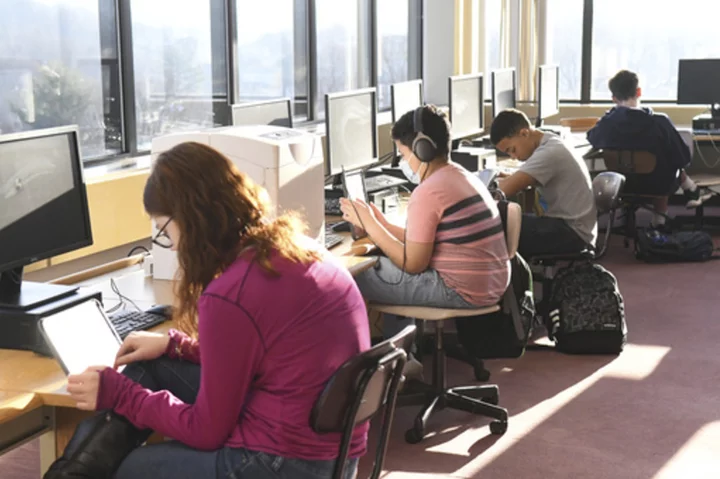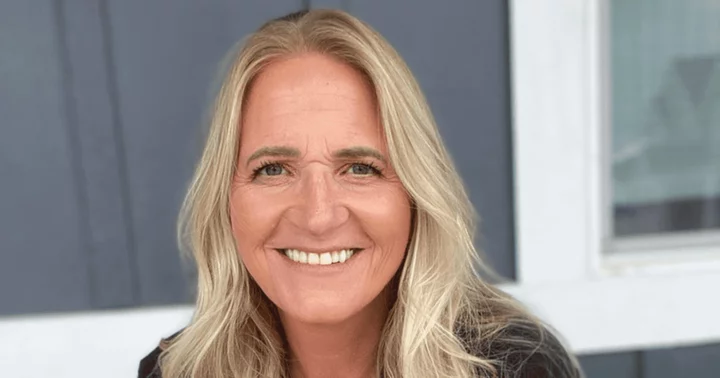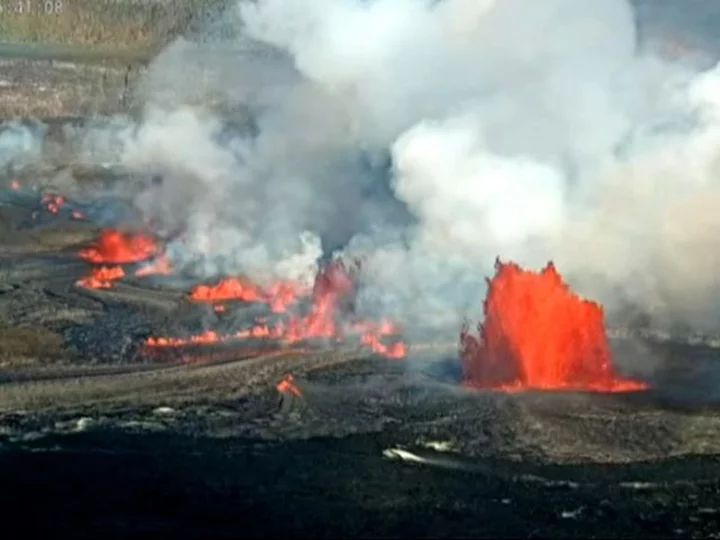Students across the U.S. fell further behind academically last school year despite extensive efforts to help them recover from pandemic learning setbacks, according to an analysis of test scores released Tuesday.
The research by NWEA, a nonprofit group that administers standardized tests, lands as the 2024 deadline approaches quickly for schools to spend the last of the $190 billion in federal pandemic relief money.
There are ways schools can take better advantage of their limited resources and time to boost learning, said Chase Nordengren, the group's lead researcher for instructional strategies. He said schools could group students based on their needs and provide targeted instruction, for example, adjusting groups as individuals progress.
“We’ve been trying to send the message that this is a multiyear, if not decades-long recovery period and is going to require some fundamental rethinking of the ways that not only we educate students but we think about how students are grouped and how we think about their learning,” he said.
The study used data from about 6.5 million students who took the MAP Growth assessment in reading and math since the onset of the pandemic. Those numbers were compared with data on academic growth from three years before the pandemic.
The results this year — the third full school year since the COVID-19 pandemic hit — are in some ways worse than last year, when the NWEA analysis showed students largely made academic gains that paralleled their growth pre-pandemic, said Karyn Lewis, director of the Center for School and Student Progress at NWEA, and the study’s co-author.
“And because kids are making gains at rates below pre-COVID trends, that means we’re not shrinking those achievement gaps. We’re actually widening them,” Lewis said.
With historic sums of money sent by the federal government, schools have expanded tutoring, summer learning programs and other recovery efforts.
But the analysis found that the average student still would need the equivalent of 4.1 additional months of schooling to catch up in reading and 4.5 months for math. Black and Hispanic students, meanwhile, would need even more time to catch up — about a month or more. And “that really only brings them back to the pre pandemic levels of inequality that we already saw,” Lewis said.
The study echoes the findings of federal test results released last month that found math and reading scores among America’s 13-year-olds had fallen to their lowest levels in decades.
Lewis could only speculate on why it was so bad.
“I think that perhaps we’ve neglected filling in the holes of the last two years in a rush to get back to grade-level content and we’re seeing the impact of that, that kids are not able to keep up because they’re still missing some foundational pieces.”
One of the few positive findings was in the class that just finished third grade. Those students were in kindergarten when the pandemic started, an age that made virtual learning a challenge, and their slow recovery raised alarms in a NWEA study released in December. It that found that those soon-to-be fourth graders were suffering the largest pandemic-related learning losses in reading.
But now the group’s latest analysis of end-of-year test scores shows they made above average gains. Lewis described it as “a little bit of a head scratcher.”
Lewis wonders whether families know how bad the situation is, and if there is an appetite for schools to be innovative enough to tackle the problem.
“Schools are doing the right things,” she said. "They’re just not doing enough of the right things. And I think that’s because we’ve underestimated how persistent the effects of COVID will be on kids.”
___
The Associated Press education team receives support from the Carnegie Corporation of New York. The AP is solely responsible for all content.









